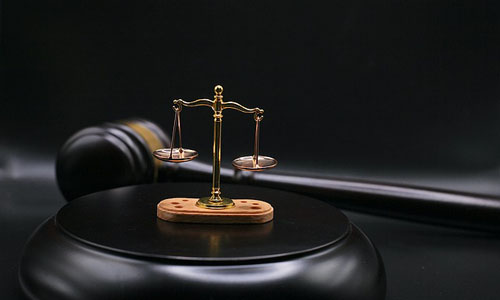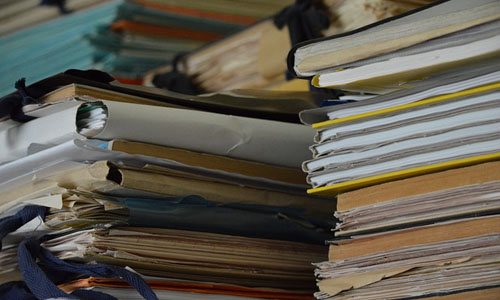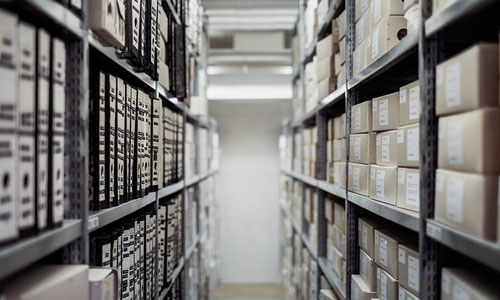Litigation Document Translation Service
Navigating the complexities of legal proceedings across different languages requires precise and accurate translation of litigation documents. Our specialized Litigation Document Translation Services are designed to support law firms, businesses, and individuals involved in crossborder legal matters. Whether you need to translate contracts, court documents, depositions, or evidence, our team of expert legal translators ensures that every document is translated with the highest degree of accuracy, maintaining the legal integrity and nuances of the original text. Trust us to be your partner in bridging language barriers in the legal field, ensuring that your legal documents are as effective and powerful in translation as they are in their original language.

Why Choose Us
Best Litigation Document Translator

1.Translation Use
Litigation document translation plays a critical role in the legal process, particularly in international and crossborder disputes. Here are some key uses of translating litigation documents:
- Court Proceedings: Accurate translation of litigation documents, such as complaints, summonses, and court orders, ensures that all parties involved, including judges and legal representatives, fully understand the case details, regardless of their native language.
- Client Communication: When dealing with international clients, translating litigation documents enables clear communication, helping clients understand the legal proceedings and their implications.
more
- Compliance with Legal Requirements: In many jurisdictions, legal documents must be translated into the official language of the court. This ensures that the case adheres to local legal standards and is processed without unnecessary delays.
- Evidence Presentation: Translated documents are often used as evidence in court. Accuracy is crucial to ensure that the evidence is presented clearly and is admissible.
- Legal Strategy Development: Lawyers use translated litigation documents to develop strategies that align with the legal standards and expectations of the jurisdiction where the case is being heard.
- Cross-Border Enforcement of Judgments: When a legal judgment needs to be enforced in a different country, the translation of litigation documents ensures that the judgment is understood and upheld in the foreign jurisdiction.
This service is essential for maintaining the integrity and efficiency of the legal process in a multilingual context.
2.Qualification Requirements
Here are the typical qualification requirements for translators involved in litigation document translation:
- Legal Background: Translators should have a strong understanding of legal terminology and concepts. This may include a degree in law or extensive experience in legal translation.
- High-Level Language Skills: The translator must be fluent in both the source and target languages, with the ability to convey complex legal concepts accurately and clearly.
more
- Certified Legal Translator: In many cases, translators are required to hold certification from a recognized professional body, such as the American Translators Association (ATA) or similar organizations in other countries.
- Adherence to Confidentiality Agreements: Translators must adhere to strict confidentiality agreements to protect sensitive legal information.
- Proven Track Record: Experience in translating litigation documents, such as contracts, pleadings, evidence, and court judgments, is often required.
- Accuracy: Even minor errors in translation can lead to significant legal consequences, so meticulous attention to detail is critical.
- Professional Conduct: Adherence to ethical guidelines and professional conduct standards is a must in the legal translation field.
These qualifications ensure that litigation document translation is conducted with the highest level of professionalism and accuracy, preserving the integrity of the legal process.


3.Translation Techniques
When translating litigation documents, precision and accuracy are crucial due to the legal nature and potential implications of the content. Here are key translation techniques often employed in the process:
- Precision in Language: Legal documents often require a literal translation to maintain the exact meaning of the original text. This involves a word-for-word approach, especially with legal terms, ensuring that the specific legal meaning is preserved.
- Understanding Legal Context: Legal terms can vary significantly depending on the legal system and jurisdiction. Translators must understand the context in which a term is used to choose the most accurate equivalent in the target language.
more
- Jurisdictional Differences: Legal systems differ across countries, so certain terms or concepts in the source language may not have a direct equivalent in the target language. In such cases, the translator must adapt the content to fit the legal framework of the target jurisdiction.
- Handling Sensitive Information: Litigation documents often contain sensitive information. Translators must adhere to strict confidentiality protocols and ensure that the translated documents are handled securely.
- Translation Memory Tools: Tools that store previous translations can be invaluable for ensuring consistency across similar documents or multiple iterations of a document.
- Multiple Review Stages: Legal translations typically undergo several rounds of review by both legal experts and language specialists to ensure accuracy.
By applying these techniques, translators can ensure that litigation documents are translated with the necessary accuracy and legal integrity.
Litigation Document Translation in 3 Simple Steps
4.Team Advantage
Choose Jinyu Translation:
- An established leader in the translation industry, Jinyu Translation has a strong advantage in the field of legal contract translation. Since its inception, the company has completed a vast number of legal contract translations with professional and meticulous service, amassing extensive experience in this domain.
- Jinyu Translation boasts top-tier experts in legal contract translation. With a highly skilled translation team and rich experience, we are committed to providing you with high-quality legal contract translation services.
more
- Jinyu Translation has established a strict confidentiality system. All translators, reviewers, and editors are bound by non-disclosure agreements with the company, ensuring truly secure services for our clients.
- Numerous legal departments and firms, including the Shenzhen Public Security Bureau, Shenzhen Customs, Shenzhen Intermediate People’s Court, Shenzhen People’s Procuratorate, Jundao Law Firm, and Guangdong Haibu Law Firm, have chosen Jinyu Translation.


5.Price System
- The translation fees between different languages may vary. Generally, the cost for translating common language pairs is lower, while rare languages or those specific to certain fields may have higher fees.
- Translation is usually charged based on the word count or page count of the source document. Longer summary reports will result in higher translation costs.
- Interpretation services are typically charged by the hour.
- Large translation projects may be eligible for discounts.
more
Language Proficiency: Translators must have a high level of proficiency in both the source and target languages. This includes a deep understanding of linguistic nuances, idiomatic expressions, and cultural contexts to ensure accurate and appropriate translations.
Specialized Knowledge: Visa translators should have specialized knowledge of legal and immigration terminology. This ensures that all legal terms and procedural language are accurately translated, which is crucial for the acceptance of the documents by immigration authorities.
Attention to Detail: Visa translators must possess exceptional attention to detail to avoid errors that could lead to visa rejections or delays. This includes carefully checking personal information, dates, names, and other critical details.
Experience: Experienced translators are preferred for visa translation due to their familiarity with the common requirements and pitfalls in visa documentation. Experience helps in delivering consistent and reliable translations.
Professional Ethics: Translators must adhere to strict professional ethics, including confidentiality and impartiality. Handling sensitive personal and legal information requires a commitment to maintaining the privacy and integrity of the documents.
Accreditation: Some countries may require translators to be accredited by government bodies or immigration agencies. This accreditation often involves additional testing or approval processes to ensure the translator’s qualifications.
Proof of Qualifications: Translators may need to provide proof of their qualifications, such as diplomas, certifications, and letters of recommendation, to be accepted by immigration authorities or clients.
Compliance with Local Regulations: Translators must comply with the specific regulations and requirements of the destination country’s immigration authorities. This includes understanding the format and standards expected for translated documents.
Technical Skills: Proficiency in using translation software and tools can enhance accuracy and efficiency. Familiarity with formatting and presentation requirements for legal documents is also beneficial.
In summary, the qualification requirements for visa translation emphasize certification, language proficiency, specialized knowledge, attention to detail, experience, and adherence to professional ethics. These qualifications ensure that visa translations are accurate, reliable, and accepted by immigration authorities.
6.After-sale Guarantee
To ensure customer satisfaction and the highest quality of service, a comprehensive after-sale guarantee for visa translation is essential. Here are the key components of an effective after-sale guarantee for visa translation:
- Accuracy Assurance: We guarantee the accuracy of our translations. If any errors are found, we will promptly correct them at no additional cost.
- Timely Delivery: We commit to delivering all translations within the agreed timeframe. If there are any delays on our part, we will offer compensation or expedited service to meet your deadlines.
more
- Confidentiality: All documents and personal information are handled with the utmost confidentiality. We ensure that your sensitive information is protected throughout the translation process and beyond.
- Free Revisions: We offer free revisions if the translated document requires adjustments or if the immigration authorities request specific changes. Our goal is to ensure your complete satisfaction with the final product.
- Customer Support: Our customer support team is available to assist you with any questions or concerns you may have before, during, and after the translation process. We are committed to providing prompt and helpful responses.
- Quality Control: Every translation undergoes a thorough quality control process, including proofreading and review by a second translator, to ensure the highest standards of accuracy and consistency.
- Certified Translations: Our translations are certified and accepted by immigration authorities. We provide official certification statements or notarizations as required by the destination country.
- Ongoing Support: We offer ongoing support for any follow-up questions or additional translation needs that may arise related to the initial visa translation.
- Compliance with Standards: Our translations comply with international and local standards required by immigration authorities. We stay updated with the latest regulations to ensure that your documents meet all necessary requirements.
In summary, our after-sale guarantee for visa translation focuses on accuracy, confidentiality, timely delivery, free revisions, and comprehensive customer support to ensure that you receive the highest quality service and complete satisfaction with your translated documents.

